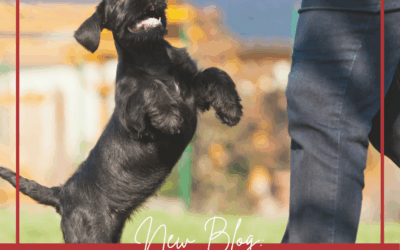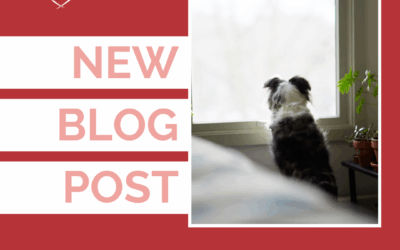Happy New Year! Thank you for all the responses to my recent survey asking for blog topics. Many of them have already been covered but I will revisit them and maybe break them down a bit more. But, with the start of the new year, I thought it would be a good reminder to help get you started off with some things to implement for 2023 to set your dog (and you!) up for success.
- Stop using punishment based methods and aversive tools like prong, choke, shock and poorly fitted martingale collars. Instead of leash corrections and lots of “no, no, no” let’s focus on alternate behaviors we would rather the dog do and reward those. No is not a behavior. And ditch the “training” collars which can have negative fallout effect from their use. Make the switch to a properly fitted no-pull harness or train your dog to comfortably wear a head halter. Read more about why not to use tools like shock collars and grab my free download here.
- Use high value food. And lots of it. Often clients will come to me and proudly say they never give their dog human food, as if it’s a badge of honor. Stop being stingy with food. Many of the things we ask dogs to do are against their natural instincts. “Don’t chase that squirrel! Come to me instead!” Praise is NEVER enough but especially for “expensive” behaviors like coming when called. Pay with good food and pay often. Food is your dog’s paycheck. If we expect them to work, they must be paid a fair wage. A milkbone for recalling away from a squirrel is NOT a fair paycheck. If you think your dog isn’t food motivated, read this.
- Lower your high expectations. Your dog’s behavior issues didn’t appear overnight and they’re not going to be “fixed” overnight. All too often we want and expect behavior change and training to be instantaneous. Just because we live in world where we can get same day delivery from everyone’s most loved/hated retailer doesn’t mean your dog’s behavior operates the same way. Behavior modification takes time, with dogs and with people. If changing habits and behaviors happened quickly, you wouldn’t need New Year’s resolutions. To modify behavior for the long term we have to have an incremental training plan, adjust as needed, be patient and ALWAYS go at your dog’s pace. Rushing things will not make behavior change faster and could set your dog back. And remember, behavior suppression is NOT the same as behavior modification.
- Don’t set your dog up to fail. Manage your dog’s environment and interactions to set him up to succeed. Allowing your dog to rehearse unwanted behaviors will strengthen them. Don’t expect a dog to just “learn to deal with” scary situations or to perform tasks that are too hard for where you are in training. Doing this will only cause you both stress and frustration and won’t help you achieve your training goals.
- Let your dog be a dog. Getting a dog and expecting a robot is going to disappoint everyone and not make for a happy home. Dogs are animals. They are a different species than we are and we should not expect them to know how to operate in our weird (and sometimes scary) human world. And they should not be denied opportunities to use their innate doggy skills that they’re hardwired to do. Enrichment isn’t optional. Enrichment isn’t a nice add-on you give your dog when you’re feeling generous. Enrichment is part of providing a good quality of life for this animal you’ve brought into your home. Failure to provide adequate species and breed specific enrichment opportunities is failing to meet the needs of your dog.
- Stop trying to DIY your training. Sure, maybe you can train your dog basic skills on your own but I guarantee it won’t be as efficient or effective as working with a professional. For dogs with fear, aggression, reactivity or separation anxiety, you need a professional to help you with training plans, management and more. Not doing so risks making your dog worse or even being a public safety risk if there’s aggression issues that could result in a bite from poor training mechanics, poor management or not understanding how to read your dog’s communication.
Let’s work together this year and help you and your dog succeed. You can schedule a session so we can review things in more detail.
Happy training!
![]()




